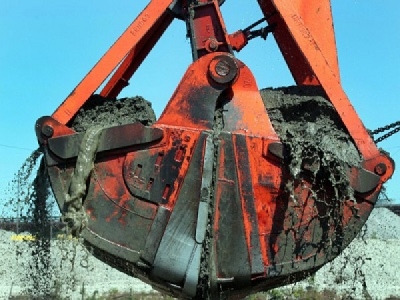
Posted on May 15, 2018
By James F. McCarty, cleveland.com
A Senate investigation that began more than two years ago has concluded that the U.S. Army Corps of Engineers sought and received a $3.5 million cut in its annual budget for 2016 with the intention of forcing the Ohio EPA to accept the dumping of dredged sediment into Lake Erie.
U.S. Senator Rob Portman, R-Ohio, launched the inquiry as chairman of the Senate’s Permanent Subcommittee on Investigations. In a five-page letter sent today to the Assistant Secretary of the Army, Portman admonished the Army Corps for refusing to dredge Cleveland Harbor in 2016 due to a lack of funds. At the same time, the Corps was lobbying for a reduction in the $9.54 million that had already been appropriated for the job.
The Army Corps subsequently lobbied Congress for, and received, a reduction in the final appropriations bill to $5.94 million for the 2016 budget.
Portman cited emails obtained by investigators in which Army Corps brass worked behind the scenes to delay the dredging of the six-mile Cuyahoga River shipping channel in 2016, and to make the safe placement of dredged sediment in containment dikes along the lakefront financially unfeasible.
The emails confirmed that the Army Corps was aware it would lack the funding to dredge the channel and dispose of the potentially toxic sediment in a dike, and that the region would suffer economic harm as a result, Portman said in the letter.
By requesting less funds than would be required, “the Corps disregarded the local impact its decision would have on local businesses that depend on the Cleveland Harbor,” Portman wrote. “In fact, the Corps’ budgetary decisions could have resulted in significant economic harm to the companies that rely on the Cuyahoga River for transportation.”
In response to the Army Corps’ failure to dredge, the Ohio EPA and the Port of Cleveland sued the Corps, accusing the agency of violating federal law by declining to dredge and properly dispose of the tainted material according to the federal Clean Water Act.
But the Army Corps continued to seek the reduction in funds and refused to dredge, which concerned the agency’s defense lawyers.
“The judge will view it as gaming the situation and purposefully trying to make the judge look bad,” by defying the judge’s prior orders, one of the Corps’ lawyers said in an email. “We will still get ordered to do it, but we will also get a lot of nasty things said about us.”
As the lawyer predicted, Judge Donald Nugent found in favor of the EPA and Port of Cleveland last December, accusing the Corps of a “derogation of its duty,” and ruling that funding had been a motivating factor for the Corps’ actions.
An official at AcelorMittal, the largest user of the shipping channel, concurred with Portman on the impact of the failure to dredge, and commended the legal fight to preserve the channel.
“The Cuyahoga River federal navigation channel is absolutely essential to our operations and our ability to maintain steel production, employment and community investment,” Mike Madar, vice president and general manager at ArcelorMittal Cleveland, said in prepared remarks.
“We are hopeful that the days of uncertainty have ended and look forward to working with our partners at the local, state and federal levels to ensure Cleveland continues to be known for good jobs, a clean environment and great quality of life,” Madar said.
This past February, the Army Corps settled its differences with the EPA and Port of Cleveland, agreeing to continue dredging the shipping channel and placing the sediment in confined containment facilities.
“I’m pleased that the Corps has now taken a different tack and is working cooperatively with the Ohio EPA,” Portman said today. “I don’t believe that would have happened without our investigation.”
Meanwhile, the Port of Cleveland has emerged as one of the nation’s leaders in green sediment recycling programs, such as a bed load interceptor that captures sediment from the river before it reaches the shipping channel, decreasing the need for dredging downstream by 10 to 15 percent.
Rather than treating dredged sediment as a waste product, the Kurtz Brothers company uses the sediment for landscaping projects or sells it to other companies for construction use.
Kurtz Brothers also has been mining thousands of tons of sediment from the Port’s containment dikes, cleaning and dewatering the material, and trucking it off the dike for sale to off-site projects.
The Port’s sediment recycling programs saved an estimated $150 million that would have been required to build a new containment storage dike as the current dikes were reaching capacity.
Combined, the recycling projects have extended the life of the containment dike by 30 years, port officials said.
An Army Corps spokesman declined to address Portman’s letter, but commended the Port of Cleveland for its sediment recycling programs.
“We are continually looking for ways to work collaboratively with stakeholders on the dredging of Cleveland Harbor, and we are committed to working across the Great Lakes Navigation System to find sustainable solutions for dredged material management at their respective ports,” said Army Corps spokesman Michael D. Izard-Carroll. “We continue to work in collaboration with the Ohio EPA and the Ohio Department of Natural resources in this pursuit.”
In 2020, a new Ohio law is scheduled to take effect that bans the open-lake dumping of dredged harbor sediment, making recycling programs essential for Lake Erie ports along the North Coast.
Source: cleveland.com





